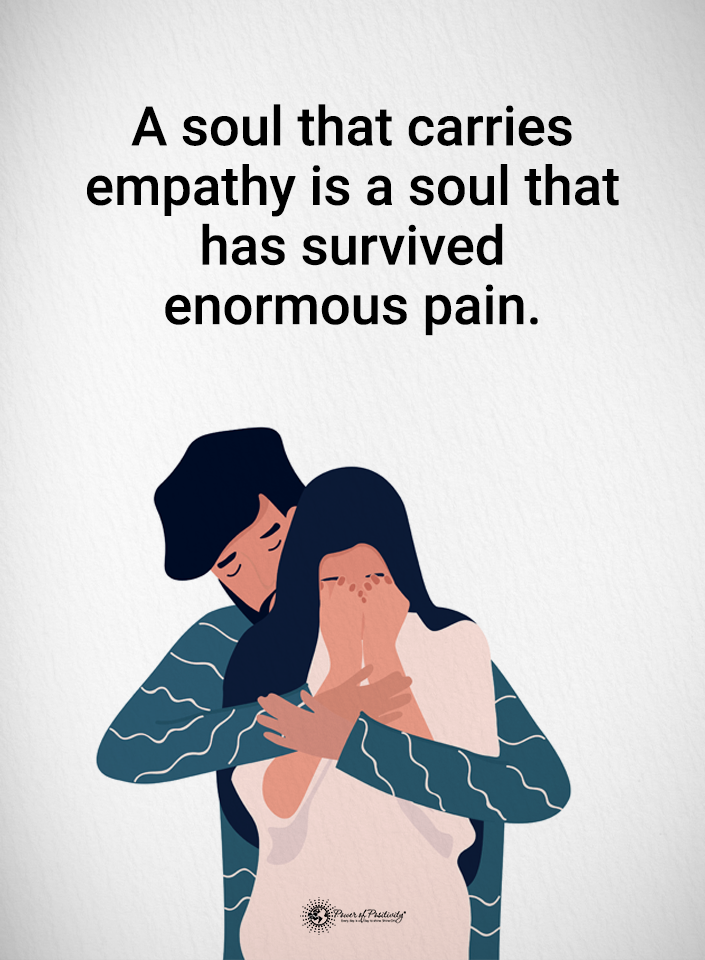Ever feel like you pick up on emotions others don’t notice? Maybe you’ve walked into a room and sensed tension before anyone said a word. That’s the magic of being an empath—a gift that allows you to deeply connect with the world around you.
Empaths feel more than just their emotions. They tap into the energy of people, places, and even nature. While it can sometimes feel overwhelming, this ability is a profound strength that brings insight and healing to others.
However, it’s important to understand that there are various types of empaths. Did you know there are multiple types of empathy? Each has unique traits that shape how they experience and interact with the world.
Discovering your empath type can change everything. It can help you thrive in your relationships, make confident decisions, and even protect your energy. Are you prepared to discover which one resonates with you? Let’s dive in.
Common Types of Empaths
Discovering the different types of empathy is like unlocking a map to your unique strengths and sensitivities.
Each type brings its own special way of connecting with the world—let’s explore which one resonates with you!
1. Emotional Empaths
Emotional empaths are the most common type. They naturally absorb the emotions of those around them, whether joy, sadness, or frustration.
This sensitivity often makes them incredible listeners and supportive friends. Emotional empaths can easily put themselves in another person’s shoes and empathize deeply, often feeling others’ pain as if it were their own.
However, this gift comes with challenges. Without setting healthy boundaries, emotional empaths can feel emotionally drained, especially in high-stress environments or when surrounded by negativity.
Their ability to tune into others’ feelings is both a blessing and a burden that requires careful balance.
2. Physical (Medical) Empaths
Physical empaths have an uncanny ability to sense physical sensations in others, often feeling another person’s physical pain or discomfort as if it were their own. This connection can be so strong that they may experience headaches, fatigue, or other symptoms when someone close to them is unwell.
Unmanaged, this extraordinary gift can negatively impact their health. However, when harnessed effectively, it allows them to support and care for others in profound ways.
- Sense physical pain in others, even from a distance
- Experience unexplained symptoms that mirror others’ ailments
- Feel depleted after spending time in crowded or stressful environments
- Strong awareness of bodily sensations, often more than most people
3. Intuitive Empaths
Intuitive empaths go beyond emotions and physical sensations. They possess a deep inner knowing or gut instinct that guides them in understanding people and situations. They can pick up on subtle energies and often have vivid dreams or flashes of insight that reveal truths.
They excel in decision-making and conflict resolution due to their ability to perceive hidden truths. However, their heightened intuition can sometimes leave them feeling overwhelmed, especially when they perceive truths that others don’t recognize or acknowledge.
Specialized Types of Empaths
Beyond the common types, some empaths connect deeply with the natural world and its living beings. These specialized empaths forge profound relationships with animals, plants, and the Earth itself.
Their unique abilities allow them to sense and respond to the energies of life around them, offering healing and harmony in unexpected ways.
4. Animal Empaths
Animal empaths share a profound bond with animals. They can intuitively understand an animal’s feelings, needs, and pain. This ability often leads them to careers as veterinarians, trainers, or animal advocates. They may even communicate with animals in ways that seem magical to others.
Animal empaths often feel most at peace in the company of animals. This connection brings them comfort and allows them to provide extraordinary care for creatures that need it.
5. Plant Empaths
Plant empaths have an intuitive connection to the plant kingdom. They can sense the health and needs of plants, often feeling the energy of a garden, forest, or single plant. This makes them natural gardeners, environmentalists, or herbalists.
Plant empaths find joy and solace in nurturing plants, believing that organisms communicate their needs energetically. Being surrounded by greenery brings them peace and a sense of purpose.
6. Earth (Environmental) Empaths
Earth empaths resonate deeply with the planet’s energy. They feel shifts in the Earth, such as weather changes, natural disasters, or environmental destruction. These shifts can trigger profound emotional responses, such as sadness or anxiety.
Environmental empaths are often driven to protect nature, whether through advocacy, conservation, or simply spending time in natural surroundings to recharge their spirits. They see the Earth as a living entity and feel a calling to restore balance.
Rare and Unique Empath Types
Some empaths possess extraordinary abilities that set them apart as rare and unique. These types dive deeper into emotional, spiritual, and intuitive realms, offering profound insights and transformational experiences.
From reflecting truths to uncovering messages in dreams or sensing unspoken thoughts, these empaths connect in ways that are truly exceptional.
7. Heyoka Empaths
Heyoka empaths are the rarest and most transformative type of empath. They act as emotional mirrors, reflecting people’s true feelings and behaviors back to them in surprising ways. Their unique purpose is to challenge norms and spark deep self-reflection, often helping others heal and grow.
While their approach can feel unconventional or even uncomfortable at times, their insights are invaluable for personal transformation.
- Reflect emotions and behaviors to others intuitively
- Help others see truths they may avoid
- Often challenge societal norms and conventions
- Spark emotional growth and self-awareness
- Can unintentionally provoke strong emotional responses in others
8. Dream Empaths
Dream empaths receive guidance and insights through their dreams. They often have vivid or prophetic dreams that help them understand their lives or assist others. For dream empaths, sleep is a sacred time to connect with their subconscious and spiritual realms.
Dreams serve as their window into deeper truths, allowing them to interpret hidden meanings and offer guidance to those around them.
9. Telepathic Empaths
Telepathic empaths sense the thoughts and unspoken feelings of others. This ability enables them to connect deeply without the need for verbal communication. They might know what someone is thinking before they say it or intuitively sense someone’s intentions.
While this gift fosters strong relationships, it can also overwhelm them, as the constant influx of unspoken energy requires great emotional resilience.
Identifying Your Empath Type
Discovering your empath type is an enlightening step toward self-awareness and personal growth. Each empath experiences the world differently, and understanding your unique abilities can help you navigate life with greater ease and purpose.
Empaths are deeply intuitive individuals who connect with the energy, emotions, or physical sensations of others—and sometimes with nature or the unseen. Knowing your type allows you to embrace your strengths, set boundaries, and cultivate a life where your gifts can flourish.
Through reflection and self-assessment, you can begin to recognize patterns in your interactions, emotional responses, and connection to the world around you. Do you resonate with others’ emotions? Sense unspoken thoughts? Or perhaps feel a strong bond with animals or nature?
Take the self-assessment quiz below to uncover your empath type and learn how to embrace your unique traits!
#sqb_quiz_builder .sqb_category_details {max-width:375px;background-color:#f3f3ff;border-width:3px;border-style:dotted;border-color:#0c0000;box-shadow:#ffffff 0px 0px 0px 0px;float:left;margin-bottom:10px;padding:25px; }
.sqb_edit_template , .quiz_start_template_outer .sqb_edit_template, .hidden_sqb_quiz_credit_banner {display:none!important;}
Challenges Faced by Empaths
Empaths possess a remarkable ability to deeply connect with others’ emotions and energies. However, this heightened sensitivity can present unique challenges that impact their well-being.
Emotional and Physical Overwhelm
Empaths often absorb the emotions and physical discomforts of those around them, leading to:
- Emotional Fatigue: Constantly processing others’ feelings can result in exhaustion and burnout
- Physical Symptoms: Experiencing ailments that mirror those of others, such as headaches or fatigue
- Overstimulation: Crowded or noisy environments can overwhelm their senses, causing anxiety or stress
Importance of Setting Boundaries
Establishing clear boundaries is crucial for empaths to protect their energy and maintain healthy relationships.
- Preserving Well-Being: Boundaries help prevent emotional overload and physical depletion
- Enhancing Self-Care: Prioritizing personal needs enables empaths to recharge and function effectively
- Fostering Healthy Relationships: Clear limits ensure balanced interactions and mutual respect
By recognizing these challenges and implementing healthy boundaries, empaths can navigate their sensitivities more effectively, leading to a more balanced and fulfilling life.
Habits for an Empath to Stay Healthy
Learn to say no

Set boundaries for yourself as to what you will do and won’t do. Don’t allow people to walk all over you, getting you to do jobs that no one else will do. Step back and consider where you want to invest your time and talents. If you do this, you’ll be happier and be less stressed out.
Go outside every day.
Find time every day to go outside and enjoy nature. It’s your safe place where you can get refreshed and recharged, whether it’s a quick jog around a lake or a swim in the lake. Nature allows you to feel more peaceful and calm away from people’s feelings or emotions.
Recharge by being alone
Take time for yourself every day. Read a book, take a long bath, or relax on your front porch watching the birds in your yard. Being alone is necessary for an empath since you’re prone to feeling burdened by other’s struggles. Don’t feel guilty about needing alone time. It’s healthy. You’ll be able to do all you need to do when you’re recharged and rested.
Communicate your needs to your partner
Don’t shy away from sharing what you need with your partner. They may not understand if you don’t tell them. Explain your need for space and time alone. Tell them what it’s like to experience the weight of others’ feelings. If they fail to comprehend your feelings or insist on you developing a stronger emotional resilience, it might be time to terminate this relationship. You need someone who wants to support you, not pull you down.
Get healing from past trauma.
Empaths feel things very deeply. Some empaths have suffered physical or verbal abuse or had parents who didn’t understand their child was an empath. This can cause verified levels of post-traumatic stress.
An empath who has past trauma may need to get help from a counselor to deal with their past traumas for a healthy life. Carrying these past traumas can cause depression, chronic fatigue, and panic attacks.
Pursue faith
Empaths are spiritual people. Many empaths find help from their faith. They feel relieved to get help outside themselves, pursuing God as an anchor for their hearts and minds.
Journal
Journaling is a great way for an empath’s emotional health. When you write down your feelings and worries, it makes you feel better. You feel as if you’re unloaded your burdens on paper so you can separate yourself from your feelings.
Loving an Empath

So, you’re pretty sure your partner is an empath. You’re a lucky person to have such a loving, loyal partner in your life, but you must understand how to love your empath partner. Here are some suggestions for you to love them well.
1. Express your feelings with them
When you’re upset or anxious, share your feelings with your partner. They have probably picked up on your emotions, anyway. They aren’t able to read your mind, of course, so telling them what’s going on in your mind is important for them.
Empaths are great listeners. But they are prone to overthinking things. So you can help your partner worry less about you if you are quick to share with them what’s going on in your heart and mind.
2. Don’t lie to your partner
Never tell big or little lies to empath partner. If they sense your lying, it will be very hurtful to them. Empaths hate lying and deceitfulness. Be honest with them, knowing that they will be able to handle whatever you share with them. Avoid the possibility of damaging a beautiful relationship by revealing even a slight deception. It’s not worth it.
3. Be a good listener
One of the most important things an empath needs in a relationship is someone who will listen to them. They have strong feelings, so they need to unload their thoughts to a trusting partner who understands them. Try not to solve all their problems as they share, but listen.
If they ask for your input, be sure to reassure them of your love before giving them advice. Empaths try to please people so. You want them to be assured of your acceptance before you give them advice.
4. They may not be able to explain how they feel
Your partner has a lot of feelings and emotions spinning in their heart and mind. They may not be able to explain why they feel so sad or anxious. Give them space and time to talk out what they’re really feeling. Have some good questions to help them understand what’s going on inside of them.
5. Be prepared for emotional expression
Empaths are emotional and share emotionally. Allow your partner to vent their emotions without fear of judgment from you. You may find this challenging, especially if your partner is carrying the burdens of other people’s feelings. Don’t tell them to let go of it or forget about how another person feels.
They can’t do this. Instead, comfort them when they’re feeling emotionally overwhelmed and listen patiently as they vent their own emotions.
6. Don’t try to change your empath partner
You mustn’t try to change your partner. You may think that if they just stopped worrying about other people, they would feel better. This is impossible for an empath. It’s akin to instructing a fish to avoid swimming. This won’t be helpful, and your partner will not feel loved or understood by you.
7. Decide how much social time you’ll both have
You may like to hang out with friends, but your impact partner may not be able to handle too much time socializing in groups. The two of you must sit down and discuss how you will socialize as a couple. Ways to compromise with your partner. Schedule times for your empath partner to be alone to recharge.
8. Determined space in the house
Empaths need space. They can feel smothered if they have too much together time. Ask what type of space your partner needs to set up the best arrangements for them. Do they need a private room where they can sit and read and recharge?
Should your empath partner have a private bathroom? All these things are important for you and your partner to discuss.
9. Don’t take things personally
Your partner may not always be easy to understand. They may be more preoccupied with other people’s troubles than you. Please don’t take it seriously. Be there for your empath partner, love, and care for them. Don’t react to their comments or emotions, but support them.
Push back on their wrong thinking when appropriate, but overall remember they chose you as their partner. You are an important part of their life, even if they don’t always act like it.
10. Be sure to have fun
Empaths are often intense people. You must help your empath partner learn to play. Be playful with them and help them laugh. Having fun will deepen your relationship and make them feel especially loved by you.
Nurturing Your Empathic Abilities
Nurturing your empathic abilities involves embracing self-care practices and connecting with supportive communities to maintain emotional balance and personal well-being.
Self-Care Practices
- Engage in deep, slow breaths to center yourself and alleviate stress.
- Regularly document aspects of life you’re thankful for to shift focus toward positivity.
- Learn to say no and set limits to protect your energy and prevent overwhelm.
- Practice mindfulness or connect with nature to stay present and balanced.
- Incorporate gentle exercises like yoga or walking to release accumulated stress.
Seeking Support and Community
- Join local or online groups to share experiences and gain insights from fellow empaths.
- Consult therapists or counselors familiar with empathic sensitivities for personalized strategies.
- Engage with books, workshops, and online courses to deepen your understanding and coping mechanisms.
Your Empathic Journey Awaits
Understanding and embracing your empathic abilities is a journey of self-discovery and empowerment. Whether you identify as an emotional empath, a dream empath, or any other unique type, your gifts serve as a potent tool for fostering connection, compassion, and healing. By nurturing these abilities through self-care and building supportive connections, you can thrive in a world that often feels overwhelming.
Remember, being an empath isn’t a weakness—it’s your superpower. Lean into your strengths, protect your energy, and let your intuition guide you to live a life full of meaning and purpose.
The world needs your light, your empathy, and your unique perspective. So keep shining—because when empaths thrive, the world becomes a better place for everyone. 
The post What Are the Types of Empaths and How to Identify Yours appeared first on Power of Positivity: Positive Thinking & Attitude.

























